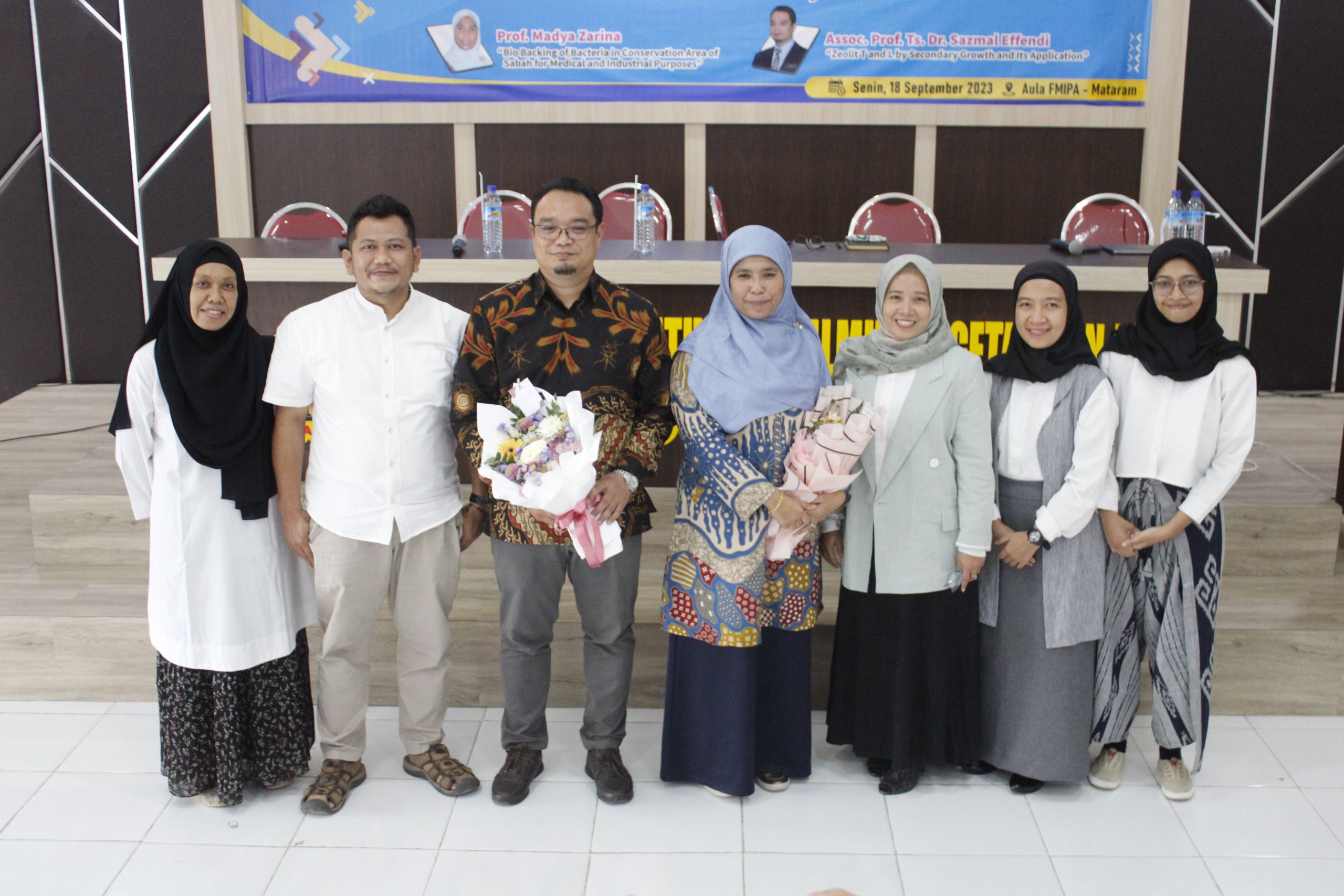UMS Professors Visits, Discussed Latest Breakthroughs in Biology and Chemistry.

Mataram, the University of Mataram – On Monday, September 18, a general lecture was undertaken at the Faculty of Mathematics and Natural Sciences hall of University of Mataram. This general lecture was attended by students and lecturers from Biology and Chemistry Study Programs with two keynote speakers from Universiti Malaysia Sabah, Prof. Asc. Dr. Sazmal Effendi bin Arshad and Prof. Madya Zarina bint Amin.
In the first lecture, Prof. Asc. Dr. Sazmal Effendi bin Arshad presented a very interesting topic about “Zeolite T and L by Secondary Growth and It’s Application.” He explained the potential of metakaolin as a product that is processed by heating up the kaolin at high temperatures as a basic material in zeolite synthesis. This material is very profitable because it is affordable and environmentally friendly, so it complies with green chemistry principles. The synthesis process is influenced by many factors, and the results can be confirmed through X-ray diffraction (XRD) analysis. Apart from that, Prof. Sazmal also discussed the differences between T and L zeolites, as well as the importance of secondary growth in the crystal formation process to facilitate the formation, filtering, and reuse of waste.
The second lecture was delivered by Prof. Madya Zarina binti Amin about “Biobanking of Bacteria in the Conservation Area of Sabah for Medical and Industrial Purposes”. In this lecture, Prof. Zarina discussed her various projects related to bacterial conservation in Sabah area for medical and industrial purposes. These projects included genome sequencing of marine bacteria, catalytic and thermal adaptation of thermostable bacteria, subunit fragment vaccines, wild animals as reservoirs for viruses and bacteria, bacterial biobanks, and bacteria in biofilm inhibition. In her research, enzymes were isolated from bacteria found from various sources. This enzyme production method was very efficient due to the bacteria’s ability to reproduce quickly. Bacterial isolates were analyzed based on genomic data to determine their potential for industrial and medical applications. In addition, his or her research also included the screening for thermostable enzymes that can replace harmful chemicals in certain processes. All of these projects explored different aspects of microbiology using the same methods.
Those two experts provided valuable learning experiences for Unram students and lecturers in the fields of Biology and Chemistry and hopefully it can open up interesting research opportunities in the future.
